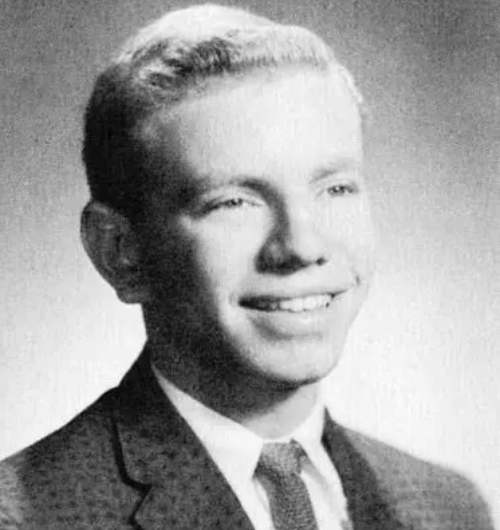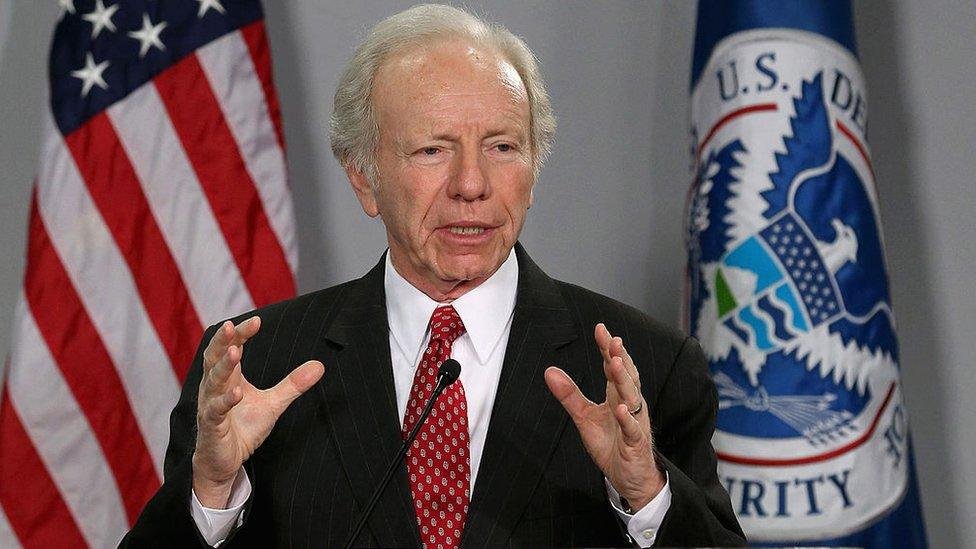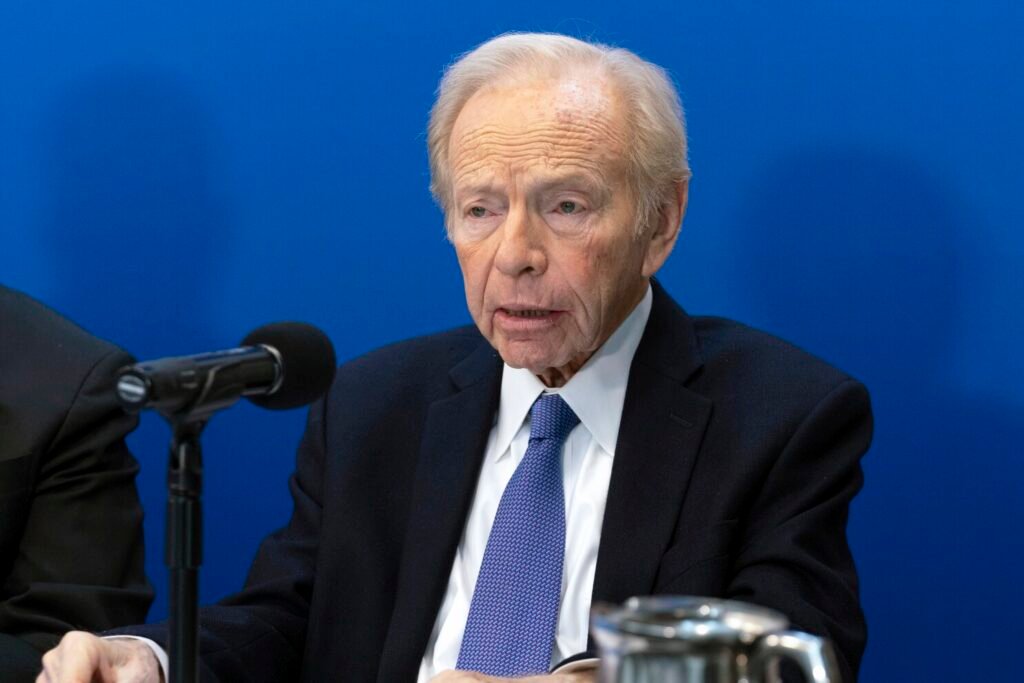Joe Lieberman Then and Now
Joe Lieberman Then
Joe Lieberman, born in 1942 in Stamford, Connecticut, grew up in a Jewish family led by his parents, Marcia and Henry.
His educational journey began at Yale University, where he earned a Bachelor of Arts degree in both economics and political science.
This foundation in the liberal arts, coupled with his keen interest in law and governance, propelled him to Yale Law School.
There, he graduated with a Bachelor of Laws (LLB) degree in 1967. Following his graduation, Lieberman began his professional career as a lawyer at Wiggin & Dana LLP, a well-respected law firm based in New Haven.
His legal background would later inform his political career, providing him with a strong understanding of the legal system and public policy.
Lieberman’s political career commenced in 1970 when he was elected to the Connecticut Senate as a reform Democrat.
Over the next decade, he built a reputation as a dedicated public servant, eventually serving three terms as the Senate Majority Leader.

In this role, Lieberman was influential in shaping key legislative initiatives and promoting a progressive agenda that addressed the needs of Connecticut residents.
Despite a setback in 1980 when he lost a bid for the U.S. House of Representatives, Lieberman’s political ambitions did not wane.
He went on to serve as Connecticut Attorney General from 1983 to 1989.
During his tenure, he focused on environmental enforcement and consumer protection, championing causes that reflected his commitment to social justice and the public good.
His experiences in the Connecticut Senate and as Attorney General laid the groundwork for his subsequent ascent in national politics.
Related Article: Mike Pence Then and Now
Joe Lieberman’s Political Career
Joe Lieberman’s political career began when he was first elected to the U.S. Senate as a Democrat in the 1988 election.
From the outset, he was known for his commitment to various social issues, notably spearheading initiatives aimed at addressing violence in video games.
This advocacy contributed significantly to the establishment of an industry-wide video game rating system, reflecting his focus on consumer protection and media responsibility.
Lieberman’s popularity grew substantially over the years, culminating in 1994 when he achieved a historic victory in Connecticut, securing 67% of the vote—the largest margin in the state’s Senate history.
Related Article: Dan Quayle Then and Now
His leadership within the Democratic Party was further solidified when he served as chair of the Democratic Leadership Council from 1995 to 2001, a role that positioned him as a prominent centrist voice within the party.
Lieberman’s career also featured notable moments of contention, particularly in 1998 when he became the first prominent Democrat to publicly challenge President Bill Clinton regarding his conduct during the Monica Lewinsky affair.
Although he ultimately voted against Clinton’s impeachment, this stance showcased his willingness to prioritize ethical governance over partisan loyalty.
In 2000, Lieberman was elected to a third Senate term with 64% of the vote, further reinforcing his political clout.
Related Article: Dick Cheney Then and Now
He played a pivotal role in the establishment of the Senate New Democrat Coalition, advocating for a centrist approach within the party.
Following the September 11 attacks, Lieberman became a leading advocate for national security, championing the creation of the Department of Homeland Security and serving as Chairman of the Homeland Security and Governmental Affairs Committee.
His political trajectory reached a significant milestone in August 2000 when he was selected as the Democratic nominee for Vice President alongside Al Gore.
This historic nomination made Lieberman the first Jewish candidate on a major political party ticket.
Related Article: Al Gore Then and Now

Although they won the popular vote by over 500,000, Gore and Lieberman lost the presidency to George W. Bush in a contentious electoral battle.
After this high-profile campaign, Lieberman sought the Democratic nomination for president in 2003 but withdrew in early 2004 after struggling in the primaries.
In the following years, Lieberman faced challenges within his own party, particularly regarding his stance on the Iraq War.
His support for the conflict alienated some constituents, leading to a primary defeat in 2006 against Ned Lamont, who campaigned on an anti-war platform.
Related Article: Jimmy Carter Then and Now
Despite this setback, Lieberman successfully ran as an independent candidate in the November election, winning reelection with 50% of the vote.
Throughout his fourth term, he continued to advocate for various causes, including leading the government’s response to the H1N1 influenza pandemic and championing the Don’t Ask, Don’t Tell Repeal Act of 2010, which aimed to allow LGBTQ individuals to serve openly in the military.
Lieberman’s political alignment evolved over time, especially after his endorsement of Republican John McCain during the 2008 presidential election.
This shift, along with his decision to caucus with Democrats, highlighted his complex relationship with party politics.
Related Article: George W. Bush Then and Now
Despite his independent status, he remained an influential figure, advocating for issues such as health care reform and national security.
He played a crucial role during the debate over the Affordable Care Act, where his opposition to the public health insurance option was significant enough to lead to its removal from the final legislation.
After retiring from the Senate in December 2012, Lieberman transitioned into various roles in the private sector and think tanks, continuing to influence public policy discussions.
His career has been marked by a unique blend of bipartisan cooperation and contentious debates, reflecting his centrist philosophy and commitment to a variety of progressive causes, even as he faced criticism for some of his positions, particularly regarding military and surveillance policies.
Related Article: Bill Clinton Then and Now
Joe Lieberman’s Wife and Children
Joe Lieberman’s personal life has been marked by two significant marriages and a focus on family.
In 1965, he married Betty Haas, whom he had met while both were student interns in the congressional office of Senator Abraham Ribicoff.
Their marriage lasted until 1981, during which they had two children, Matt and Rebecca. After their divorce, Lieberman found love again and married Hadassah Freilich Tucker in 1982.
Related Article: Michelle Obama Then and Now
Hadassah has had an impressive career, holding senior positions in various organizations and contributing to public service in her own right.
Together, they welcomed a daughter, Hani, further expanding their family.
Additionally, Lieberman became a stepfather to Hadassah’s son, Ethan, from her previous marriage.
This blended family has played an essential role in Lieberman’s life, supporting him throughout his political career and personal endeavors.
Related Article: Jeff Flake Then and Now
Joe Lieberman Now

Joe Lieberman, who served as a United States senator from Connecticut from 1989 to 2013, passed away on March 27, 2024, at the age of 82.
His death followed injuries sustained in a fall at his home in the Bronx, marking the end of a distinguished political career that spanned decades.
Throughout his life, Lieberman was known for his bipartisan approach and willingness to cross party lines, a trait that garnered him respect across the political spectrum.
Related Article: John Hickenlooper Then and Now
In the wake of his passing, he received heartfelt tributes from a wide array of political leaders, including Presidents Joe Biden, Barack Obama, George W. Bush, and Bill Clinton, as well as Vice Presidents Kamala Harris, Mike Pence, and Al Gore.
Prominent senators and international leaders, such as Tom Cotton, Lindsey Graham, Isaac Herzog, and Benjamin Netanyahu, also paid their respects, reflecting Lieberman’s influence both domestically and abroad.
Lieberman’s legacy as a politician is marked by his significant contributions to American governance, particularly during his tenure as a senator.
Related Article: Larry Hogan Then and Now
He was the Democratic nominee for vice president in the 2000 U.S. presidential election, making history as the first Jewish candidate on a major political party ticket.
Throughout his career, he was known for his centrist views and pragmatic approach to policy-making.
In his final term, Lieberman was officially listed as an Independent Democrat, emphasizing his complex relationship with party politics while continuing to work closely with the Democratic Party, including chairing important committees.
Related Article: Tom Wolf Then and Now
His advocacy for issues such as national security, health care reform, and civil rights has left a lasting impact on both the Senate and the broader political landscape in the United States.
Lieberman’s life and work exemplify a commitment to public service and bipartisan cooperation, qualities that will be remembered by colleagues and constituents alike.
Related Article: Sheldon Whitehouse Then and Now
Joe Lieberman’s Net Worth
At the time of his death, Joe Lieberman was an American politician, attorney, and lobbyist with a net worth of $3 million, reflecting his successful career in public service and his various roles in the private sector following his tenure in the U.S. Senate.
Related Article: Ron Wyden Then and Now






























